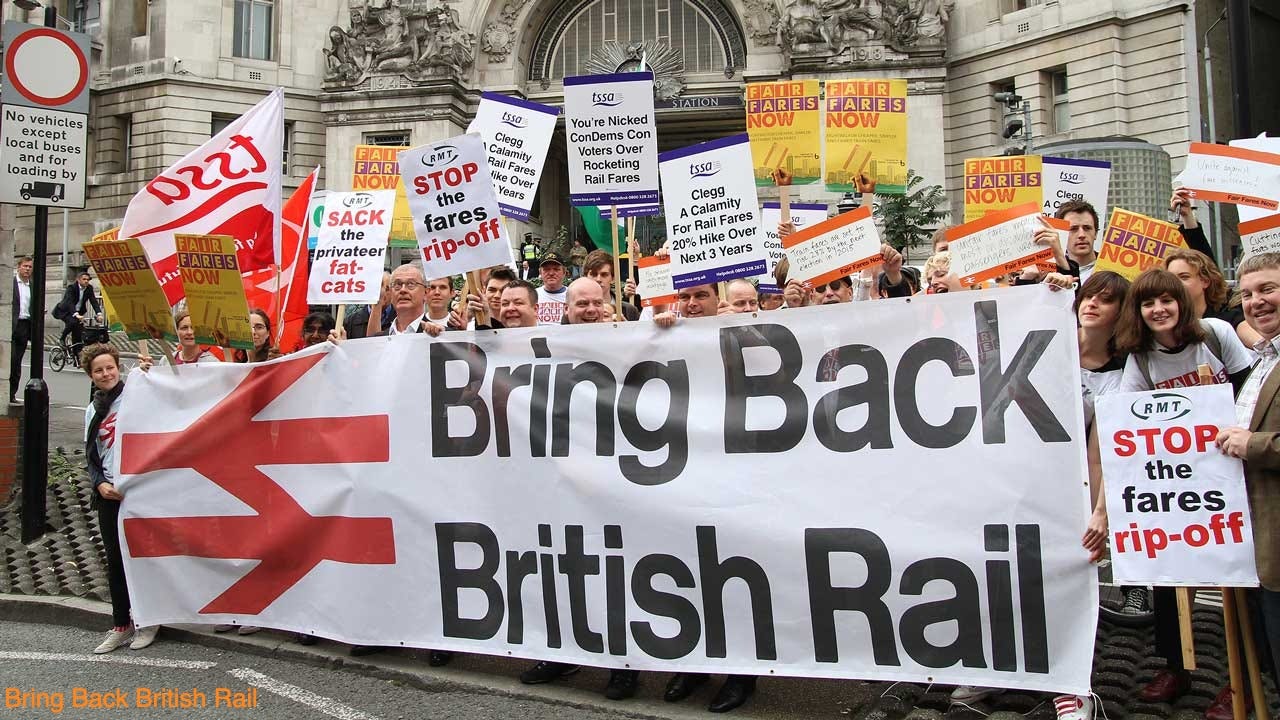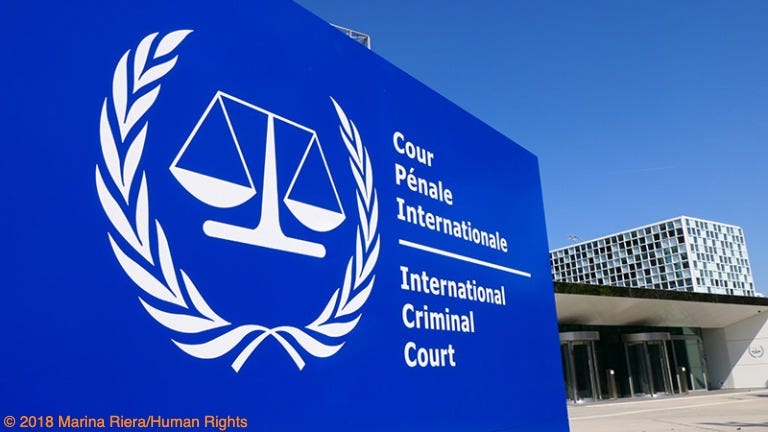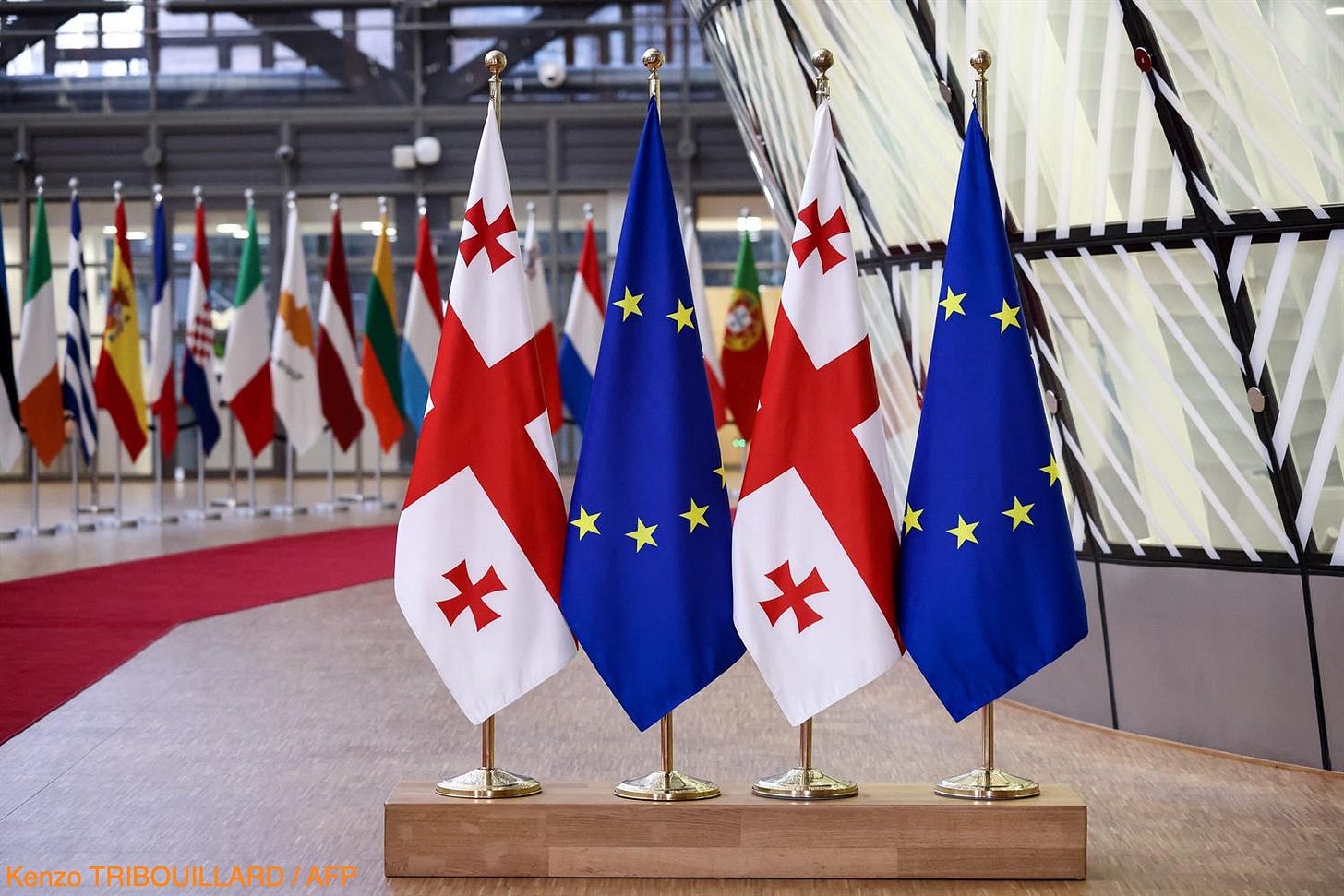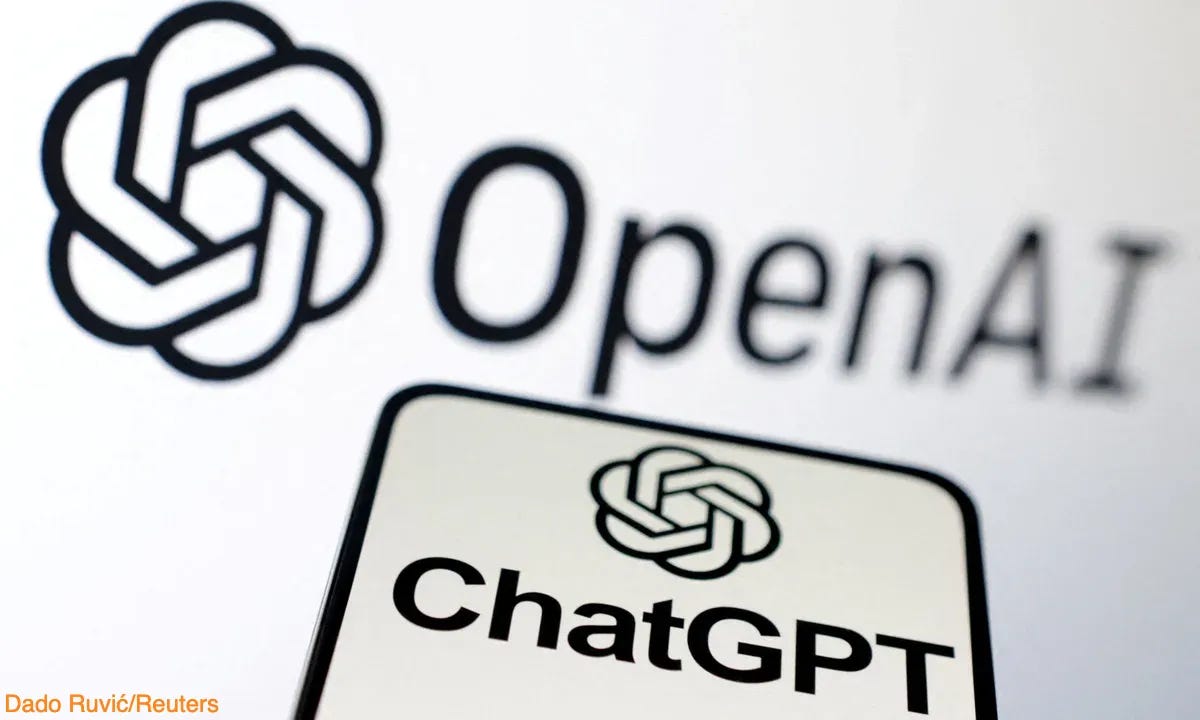Hello everyone! Welcome to this term’s last edition of the LAN. I hope you’ve enjoyed the editions so far and enjoy this edition (and those to come next term!) There are a lot of interesting articles. For example, on the political crisis in France and the jurisdiction of the ICC.
Have great holidays and make sure to rest!
All the best,
Jago Cahill-Patten
Publications Officer
General Section
Labour’s Nationalisation of UK Railways: A Shift Back to Public Ownership
Isabella North Amigo
The Labour government is moving forward with one of its key manifesto pledges: nationalising the UK’s railways. The process begins next May with South Western Railway (SWR) coming under government control, followed by other major London commuter services such as c2c and Greater Anglia by 2025. This marks a pivotal moment in UK transport policy, with the aim of reversing decades of privatisation and addressing the longstanding issues of rising costs, poor service, and systemic inefficiencies.
What Is Nationalisation?
Nationalisation is the process of bringing a privately-owned service or industry under government control. For the UK’s railways, this means that, instead of private train operators managing services through fixed-term contracts or franchises, the government will take direct control of operations.
The UK’s rail system has been privately operated since the 1990s, following sweeping privatisation under Margaret Thatcher. These reforms introduced private Train Operating Companies (TOCs) to run services under fixed-term franchise agreements.
Labour’s new Passenger Railway Services (Public Ownership) Act 2024 enables the government to reclaim these services as contracts expire. By 2029, the entire rail network will be state-owned, ending decades of fragmented private control.
Transport Secretary Heidi Alexander describes the current system as overly complex, with private operators often failing passengers. “No one’s in control,” she said. “That’s what we’re going to be changing.”
Why Nationalise the Railways?
Proponents of nationalisation argue that private ownership has failed to deliver reliable and affordable rail services. Since privatisation, ticket prices have risen faster than inflation, making UK fares among the highest in Europe. Frequent delays, service cuts, and passenger dissatisfaction are also widespread.
The RMT union estimates that privatisation has funnelled £31 billion out of the rail system, largely in shareholder dividends- money that could have improved services or reduced fares. Unions believe nationalisation will reinvest funds into the system and eliminate profit-driven motives.
Public ownership has already delivered improvements. Southeastern and LNER, taken over due to poor private management, now report better punctuality and fewer cancellations. Labour asserts that public control enables an integrated system with greater reliability and accountability.
Why Challenges Ahead
While the move has been welcomed by unions and rail advocates, critics point to potential challenges. Private operators warn it could increase taxpayer costs, particularly if the government cannot improve efficiency.
One concern is whether nationalisation will reduce ticket prices. Labour’s manifesto prioritised service quality over fare cuts, and recent announcements suggest ticket prices may remain high. Chancellor Rachel Reeves confirmed regulated rail fares will rise by 4.6% in January 2025, despite inflation falling to 2.3%. Reeves called it “the lowest absolute increase in three years,” but it still means higher real-term costs for passengers.
The government acknowledges that public ownership alone won’t resolve all issues. Industrial relations, outdated infrastructure, and financial sustainability remain pressing concerns. Still, supporters believe public ownership will provide greater transparency and allow profits to be reinvested.
What’s Next?
As South Western Railway becomes the first major franchise to be nationalised next spring, Labour aims to address passenger dissatisfaction by prioritising public service over private profit. Success hinges on managing financial and operational challenges while meeting expectations. Although ticket prices may not drop immediately, nationalisation offers a long-term opportunity to create a unified, accountable railway system. Whether this overhaul transforms Britain’s troubled railways remains to be seen, but it marks a significant shift in transport strategy.
When Systems Fail: How France Finds Itself in a Political Crisis
Mia Ramage
Hanging low in the air of Paris’s streets, amidst Christmas markets and rain, there’s a palpable tension - France’s government is faltering, and its residents are all too aware.
On the 4th December, Michel Barnier was ousted from his position as French Prime Minister following a successful no-confidence vote being passed by a majority of members of parliament of the Assemblée Nationale, France’s representative chamber. The vote against Barnier was led by Marine LePen, leader of the far-right party National Rally, but also garnered support from left-wing parties and resulted in 331 voting in favour of the motion.
The vote came after Barnier used Article 49.3 of the French constitution, affording him as Prime Minister the power to force a bill through the Assemblée Nationale, a power he exercised to pass his deeply unpopular budget plan. This constitutional feature of the French structure already provoked a strong response as recently as 2022, with the French protests against the use of this article to pass a new retirement policy. In response to this, the Assemblée Nationale have the option to pass a motion of no confidence in the current government, leading to its collapse, given that this motion can be passed with a majority from the Assemblée. Michel Barnier made a political gamble based off this motion not passing.
On the 4th December, that gamble proved not to pay off.
Without a majority parliament, retribution from parliamentarians was swift and, whilst not unprecedented, certainly still unclear territory- a no-confidence motion has only passed once before in 1962. The result is a troubling vacuum in France’s democratic processes. With French President Emmanuel Macron having called snap elections in this summer that created France’s hung parliament, Michel Barnier already occupied a position more precarious than that of a prime minister of a safe majority. Now, President Macron has few options in the face of the crisis. Resign, or name a new President. Staunchly opposed to the former, despite calls from opposition parties, the President will have to struggle to find a candidate who can lead a minority government in a parliament that has already proven itself volatile. Macron is also subject to a pressing need to appoint this candidate within the coming days; France has yet to pass its 2025 budget, and it is imperative to reinstate a working government for this to pass.
France’s current political problems surpass a mere cautionary tale for the pitfalls of a specific system. It is an indicator of a political unrest and friction with the rise of far-right parties that has only been growing and has now materialised in the collapse of the French government. It’s yet to be seen as to who President Macron will nominate as the next Prime Minister. Moreover, it’s yet to be seen how the French assembly will react to this appointment, and how many more times we might see a similar ousting led by a divided parliament, and divided country.
The Debate Around The Jurisdiction Of The ICC
Sam Schajer
Background
On 21 November 2024, the International Criminal Court (ICC) issued arrest warrants for Benjamin Netanyahu, Prime Minister of Israel, and Yoav Gallant, former Minister of Defence.
However, there are strong arguments to be made that the ICC does not have jurisdiction to issue these arrest warrants, and that the ICC is acting in breach of international conventions and laws.
This article does not seek to consider the substance of the claims and is instead focused on the question of whether or not the ICC has the right to issue these arrest warrants.
How can the ICC gain jurisdiction over a state?
By signing the Rome Statute, a state accepts the jurisdiction of the ICC over allegations within that state (Article 12(1) Rome Statute).
Israel is not a signatory to the Rome Statute, and thus the ICC cannot use Article 12 to justify the issuing of arrest warrants.
An alternative way through which the ICC could gain jurisdiction over a country is if a state with jurisdiction over the territory that the alleged crimes occurred within, delegates jurisdiction to the ICC. The ICC says that the State of Palestine is capable of doing so having signed the Rome Statute in 2015.
However, there are significant legal shortcomings to this argument.
The legal status of Palestine is heavily contested and complex. Some thinkers argue that the State of Palestine exists as a legal entity based on the constitutive approach, evidenced by its status as a non-member observer state in the United Nations. However, the declarative approach to determining statehood, using the 1933 Montevideo Convention as its criteria, reaches a different conclusion. The State of Palestine is said to comprise the Gaza Strip, East Jerusalem, and the West Bank. Yet, the Palestinian Authority does not have exclusive control over these areas (e.g., Hamas in Gaza). This lack of exclusive control over its claimed territory means Palestine fails to meet the criteria for statehood under the declarative approach. Whether Palestine exists as a state capable of delegating jurisdiction remains a legally contested issue.
Additionally, the ICC's use of a conferral model to gain jurisdiction is problematic. The Oslo Accords 1993 did not grant the Palestinian Authority criminal jurisdiction over Israel. The ICC is issuing arrest warrants based on a power it claims to have received from the Palestinian Authority, but the Palestinian Authority never had this power to delegate. The ICC cannot claim jurisdiction over Israel when the Palestinian Authority lacks the power to confer it.
Therefore, those opposing the ICC's jurisdiction in this area argue that it is flawed, inaccurate, and improperly constructed as a matter of legal logic and reasoning. Those who support the ICC’s jurisdiction argue that Palestine can grant the ICC jurisdiction because they signed the Rome Statute in 2015.
The further issue of complementarity
The Rome Statute sets out that the ICC must act in a complementary fashion to a state's own jurisdiction. If the state has a robust and willing legal system, it should be given the chance to act before the ICC considers stepping in.
Supporters of the ICC arrest warrants say that Israel has been inactive in proceedings.
Whereas those who oppose the arrest warrants cite the fact that Israel is actively investigating claims of misconduct by its soldiers, and that the time to investigate claims against a leader who is still in power will be after the conclusion of a 7-front war.
Additionally, the claim that Israel’s judiciary is weakened because of the judicial reform proposals is inaccurate because the judicial reforms did not happen.
Conclusion
This is a crucial discussion because if one is seeking to ensure legal accountability in this conflict, it is imperative that anybody through which it is sought (such as the ICC) is itself adhering to legal standards and conventions. Failing to do so will mean that the rulings of the ICC will lack legal legitimacy, and allowing the ICC to function in breach of international law will turn the ICC into a kangaroo court.
Georgia’s Moment of Truth: Thousands Take to the Streets as EU Membership Talks Suspended
Elise Lunt
For the better part of the last two weeks, Georgians have taken to streets across their country in protest. They come in their thousands, cloaked in flags; both the red and white of Georgia’s own flag and, notably, the blue and gold of the European Union’s.
Previously, Georgia’s government has assured its largely pro-European population that the move toward European accession was a serious goal, an aim codified in the constitution. In practice, the party has long been involved in the orbit of Putin; the party’s founder being a billionaire oligarch who made his fortune in Russia. Indeed, its recent legislative record further evidences this affiliation.
Earlier in the year, Georgia passed ‘foreign agent’ legislation, mirroring that of Russia, in an attempt to limit the reach of independent organisations and dampen the effects of pluralism, a move that has had disproportionate effects on organisations that tend toward being pro-EU. Greater restrictions on LGTBQ+ and minority rights followed, provoking Brussels to reevaluate Georgia’s EU candidate status, which had been recognised in 2023. Membership talks were subsequently put on hold in June.
Nonetheless, the ruling GD party continued to assert their commitment to attaining membership into an election this October. The election itself was riddled with controversy, claims of both fraud and interference by Moscow, and even resulted in Strasbourg voting, 444-72, that the election was invalid. It emphasised that the election did not “serve as a reliable representation of the will of the Georgian people”, and that it ought to be re-run under international supervision.
These protests were catalysed by Prime Minister Irakli Kobakhidze’s announcement that any serious discussion with the EU concerning accession would be suspended until the end of the parliamentary term in 2028. This came not only as a shock but left many feeling betrayed and conned. Critics viewed this as an abandonment of pro-EU sentiment and confirming the shift toward greater Russian influence. What followed has been a profound demonstration of the population’s commitment to a European Georgia; hundreds of thousands participating in nightly protests across not only Tbilisi, the capital, but the country at large. Representing a defiant rejection of Russian affiliation, the phrase ‘No to Russia’ has been decorated onto walls and buildings across Tbilisi in graffitied lettering, most notably on the parliament itself.
The intensity of the protest is perhaps only second to that of the response. Demonstrators have been targeted with rubber bullets, water cannons, and tear gas. Individuals have also been specifically hunted down and beaten by police; more than 200 have been detained, and a significant number hospitalised. A prominent opposition leader, Zurab Japaridze, was also arrested after the prime minister accused the opposition parties of using ‘coordinated violence’ in attempting to thwart constitutional order.
With this unrest ongoing, leaders within the European Union are faced with a difficult decision. Either they sit idly by and watch the suppression of these demonstrations, or they act, implementing sanctions and revoking the visa-free travel arrangements in place for Georgian citizens in attempts to influence the government. Yet, this risks isolating Georgia and consolidating the shift toward Moscow and Putin, pushing them only deeper into Russian spheres of influence.
Commercial Awareness Section
From Algorithms to Advertisements: OpenAI’s Advert Strategy and its Impact on Law Firms and Tech
Muyiwa Oladokun
OpenAI has its eyes on the prize: the tech start-up is currently discussing plans to start advertising its products, showing they want a larger piece of the pie within the technology industry. OpenAI, the functioning model behind ChatGPT, has sent shockwaves through the tech industry after having amassed a $150bn valuation and 250mn active weekly users through its AI products.
Crucially, it is now considering advertising its products as it transitions from a non-profit organisation to a for-profit company. In an interview with the Financial Times, Sarah Friar, Chief financial officer of OpenAI, stated that the company is “weighing up” an ads model and that it aims to be “thoughtful about when and where” to implement it. It has also hired advertising talents from tech rivals like Google, including Shivakumar Venkataraman, Vice President of Google’s search advertising team.
So Why is OpenAI Considering Advertisements?
The principle reason for OpenAI to consider advertisements is brand longevity. While the start-up has been the most booming start up in the tech industry having amassed $4bn in annualised revenue, the cost of producing their ubiquitous AI products is huge. This may hinder its long-term growth. For example, this year alone OpenAI is on the path to spend roughly £5bn on its AI products like ChatGPT and API (a product which helps businesses to grow with OpenAI’s technology.) Because of this, the tech company is considering advertisements on the platform, in a quest to raise the revenue needed to become a long-lasting force within a tech industry rife with competition from Google, Meta and more.
However, some have pointed out the drawbacks that come with an ad model. Sarah Friar notes that an ad model may shift the company’s focus from pleasing users to pleasing advertisers, which may decrease their revenue and ability to break even. Despite this, the consensus seems to be that advertisements could still be a viable source of revenue going forward.
How might OpenAI’s Ad Strategy Impact the Tech Industry and Economy?
Nonetheless, even if OpenAI’s ad strategy and recent shift to a for-profit company will increase their revenue, this would only reinforce the fierce levels of competition already in the technology industry. This is seen amongst different functioning models including Google’s Gemini, Anthorpic’s Claude 3, and Meta’s AI assistant. Given that OpenAI’s products are almost identical to these, their advertisements may incentivise such rivals to innovate, which may increase competition and investment within the tech industry, thus growing the economy.
How Might OpenAIs Ad Strategy Impact Law Firms
It is highly likely that OpenAI’s Ad strategy and restructuring to a for-profit company to increase their revenue, will reinforce the fierce competition within the AI/Technology sector. Such competition would largely benefit law firms. This is because the increased AI functioning models (caused by competition) would be of great use to commercial law firms, exposing them to various AI products which can be leveraged to automate routine tasks like drafting NDA’s and other legal documents, thus maximising efficiency in legal services. Interestingly, Richard Robinson, CEO of Robin AI, states that AI could “definitely reduce billable hours” for law firms, which hints at how OpenAI’s rise may prove advantageous for this industry.
For now, if OpenAI does begin advertisements, regardless of the result, the impact will certainly be felt throughout the tech industry
Interchange Fees:
Interchange fees are transaction fees that a merchant's bank pays to the cardholder's bank whenever a consumer uses a credit or debit card for payment. These fees are typically a percentage of the transaction amount and are meant to compensate the card-issuing bank for handling the transaction. Interchange fees are often criticized by merchants for being too high, as they directly impact their profit margins. These fees have been the subject of numerous lawsuits, with regulators and merchants arguing that high fees are anti-competitive and harm consumers by leading to higher retail prices.
Simone Liang
Collective Action:
A collective action, also known as a class action in some jurisdictions, is a legal procedure where a group of individuals or entities with common claims against a defendant join together to file a single lawsuit. This allows claimants to pool resources, reduce individual legal costs, and strengthen their position against a larger entity, such as a corporation or government body.
Simone Liang
Merricks v Mastercard Settlement: Litigation Funders in the Spotlight
Navika Jangra
The long-running Merricks v Mastercard case, described by Lord Sales and Lord Leggatt as a “gargantuan class action”, appears, finally, to be nearing its resolution following the announcement of a £200 million settlement on 3rd December. Initially valued at £14 billion, the claim was the largest collective action in UK history and the involvement of legal heavyweights, such as Freshfields, Wilkie Farr & Gallagher and Brick Court Chambers, further underscores its complexity. Yet, far from putting the matter to bed, the settlement raises fresh questions about the role and influence of litigation funders.
Some History: Merricks v Mastercard
The origins of the dispute can be traced back to a finding by the European Commission in 2007 that Mastercard had breached EU competition law by imposing excessive multilateral interchange fees (MIFs) on merchants using its payment network, costs ultimately borne by consumers. In 2016, collective proceedings were initiated in the UK by Walter Merricks on behalf of 46.2 million consumers and 500,000 businesses.
The Settlement: A Double-Edged Sword
While Merricks welcomed the settlement as delivering “meaningful compensation” to consumers, not everyone shares his optimism. The litigation funder behind the case, Innsworth Advisors Limited, publicly criticised the settlement as “too low and premature.” In response, Boris Bronfentrinker, the Wilkie Farr partner representing Merricks, accused the funder of prioritising its “greed” over the claimants’ interests. He further alleged that Innsworth sought to “inappropriately pressure and… influence Mr Merricks’ decision making in order to take control of the litigation.”
These mixed perspectives shine a light on a broader issue: are litigation funders champions of justice or, rather, profit-driven actors, manipulating legal proceedings for their own gain?
Litigation Funders: Facilitating or Frustrating Justice?
On the one hand, funders do play a critical role in facilitating access to justice. They provide the financial means to pursue costly and complex cases, ensuring wrongdoers do not evade accountability. Innsworth also highlights its ability to manage costs, streamline litigation processes, protect claimants from adverse cost orders if the claim fails and save claimants from pouring their own, perhaps limited, resources into litigation. Indeed, its funding of the Dieselgate litigation against Porsche and Volkswagen, which led to significant consumer victories, confirms their contribution to the pursuit of justice.
While this all may be true, critics argue the motivation of litigation funders – to secure the highest quantum of damages possible – may conflict with the interests of justice. Financial incentives could lead funders to pressure parties into high-risk strategies or unnecessarily prolonged litigation, delaying resolution for the parties and straining court resources. These concerns are particularly acute in this case since Innsworth Advisors is owned by Elliott Investment Management, a US-based activist fund, and staffed almost exclusively by investment managers rather than legal professionals.
What Next?
The Competition Appeal Tribunal (CAT) must now determine whether to approve the settlement agreement. With no authority on the point, it is unclear what weight, if any, the CAT will ascribe to Innsworth’s objections when making its determination. Either way, the Tribunal’s decision will not only shape the outcome of the Mastercard litigation but also set an important precedent regarding the role that litigation funders can play in legal proceedings.
Links:
Simone Liang
Apple faces consumer group claims over market dominance:
Apple has been subject to multiple regulatory and consumer group claims regarding the dominance of its App Store. Consumer advocates allege that Apple’s practices inflate prices and limit competition in the tech sector, a situation that continues to attract global legal scrutiny.
Google loses antitrust case over search engine practices:
Google has recently lost a landmark antitrust case concerning the dominance of its search engine. The ruling could force the company to make significant operational changes and opens the door for increased regulatory intervention across Big Tech.
COP29 debates $1 trillion climate fund:
At COP29, global leaders discussed the creation of a $1 trillion climate fund to combat climate change. Despite its ambitious goals, the proposal faces disputes over financing proportions between developed and developing nations.










